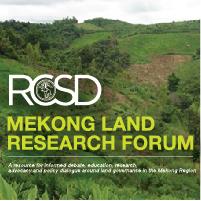Resource information
Thailand has experienced rapid deforestation especially since the 1960s. While large areas of forestlands were designated as national forest reserves, many forests were actually converted into farmlands. This article focuses on the institutional and administrative aspects of the national forest reserve system, the core institution of forest conservation in Thailand, and examines the institutional structure, historical process mostly since the 1960s, and procedures of the national forest reserve system and related policies at both in national and local levels. The national forest reserve system institutionally lacked sufficient mechanisms for enforcement and, because local people’s land use was not investigated in advance, the contradiction arose that large numbers of people resided and cultivated land in national forest reserves. While occasionally policies to give cultivation rights to these people were carried out, designation of national forest reserves continued without any structural amendments, and the contradiction was perpetuated. In the procedures of forest protection units, the sole organ for on-the-spot policing, breaches were sometimes overlooked in order to balance the regulations and actual situation of the local people’s livelihood. Forest officers are basically faithful to their tasks, even though they know the system itself substantially fails to function. But they also behave in realistic and flexible ways in applying principles that are far from appropriate to the actual situations they encounter. Institutionalization and activation of such an unrealistic system can also be interpreted as creating a wide range of discretion, which has enabled realistic forest conservation to be carried out as far as possible in the prevailing social or political climate without much friction. In order to argue for a suitable forest conservation system, this point must be taken into consideration.


